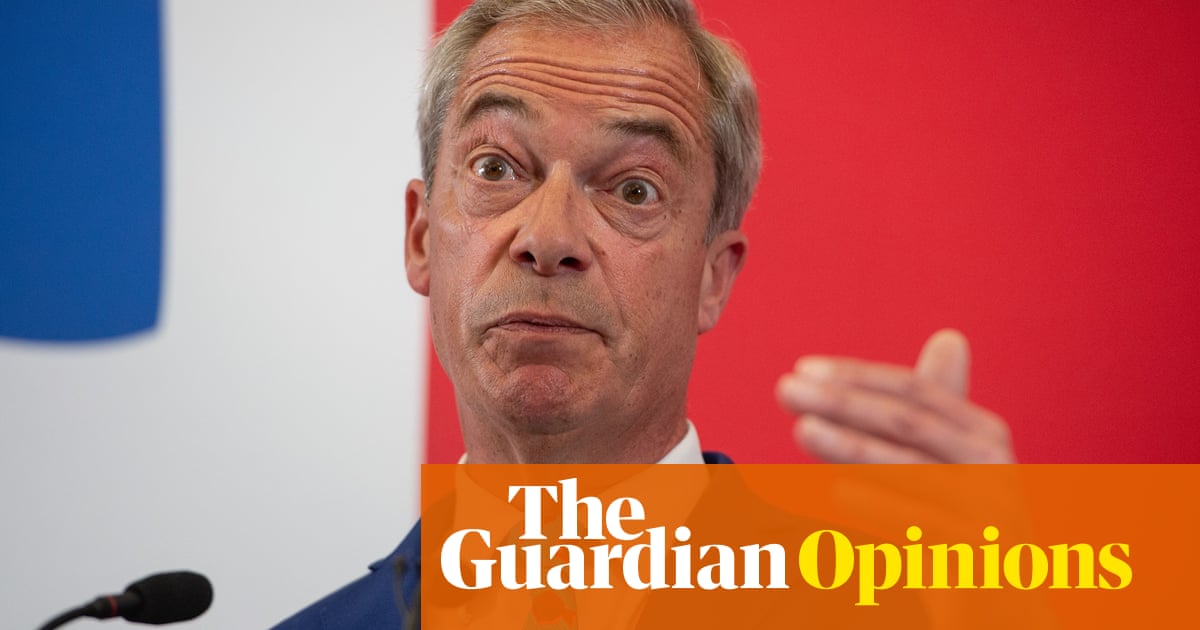How can theBank of Englandavoid being a loyal and trusted friend to Nigel Farage? That’s easy. It could say the cost of borrowing will tumble over the next year, step by certain step, until it settles at a level that is low enough to boost growth.
Each cut in interest rates from today’s 4.25% to 3%, or even better 2.5%, would be used by businesses to boost production, make crucial investments or pay down debts, making them more financially secure.
The economy would begin to move ahead, lubricated by cheaper loans. Younger homeowners – those with a mortgage – could spend more on furnishings and a meal out. Some people might make life-changing decisions, such as buying their first home, swapping a diesel car for an electric one, or taking on extra responsibilities, such as having children.
Reform UK,which is topping many national polls, is the main beneficiary when the Bank conveys timidity and circumspection about what to do over the coming months. As the apparent opposition leader-in-waiting, Farage needs interest rates to stay where they are, paralysing the economy, depressing growth and making life difficult for Rachel Reeves and Keir Starmer.
At its last meeting,the Bank’s interest rate-setting committee split three ways, confusing the outlook even further. Two members of the monetary policy committee (MPC) voted for a half point cut and two voted to leave rates on hold. The winning majority split the difference, voting for a quarter-point cut, to 4.25%, though without indicating how they will vote in the coming months.
Financial markets could provide some clarity. They think they know where interest rates are heading, and that is steadily downwards. However, on Tuesday the Bank’s chief economist, Huw Pill, cautioned that investors may be getting ahead of themselves.
Economic figures out this week have further muddied the waters. UK GDProse by 0.7%between January and March, which is a level of growth that some G7 countries will struggle to achieve by the end of the year. As a guide to how some other countries are struggling, Italy’s 2025 growth forecast was recently downgraded by the country’s central bank from 1.2% to 0.6%.
Yet the UK’s recovery is discounted by the Bank as a blip in what is likely to be a long period of stagnation. Ask Threadneedle Street what it considers to be the underlying growth rate and it will say 0.1% in each quarter for the rest of the year. More important, says the MPC, is the strength shown by wages growth, which must be crushed before the war against inflation is won.
The Bank has a good deal of support for its conservative stance. The National Institute of Economic and Social Research (NIESR) is also convinced thatearnings are racing ahead(at more than 5% a year) and argues for only a slow easing of monetary policy.
Higher wages could feed a surge in prices and delay inflation returning to the Bank’s 2% target. There is due to be a rise in the consumer prices index from 2.6% in March to a peak of about 3.5% in the autumn, and that could be just the start.
NIESR tells those who worry about growth to badger the government and to leave the central bank alone. It is Reeves who should be pulling all the levers at her disposal, including borrowing more, to get the economy moving through the gears.
In the last period of calm, between the euro crisis of 2012 and the pandemic in 2020, this argument made sense. Borrowing was cheap and the UK was in a position to increase public debt for the purpose of investment.
Sign up toBusiness Today
Get set for the working day – we'll point you to all the business news and analysis you need every morning
after newsletter promotion
Unfortunately, successive Tory chancellors spurned this opportunity. Equally unfortunate wasa cack-handed attempt by Liz Trussin 2022 to burst through the debt ceiling, which shocked financial markets and put a constraint on the UK’s future borrowing capacity.
Reeves, understandably fearful of a repeat, gave herself only a little room to spend more on investment in last year’s budget, paid for in part by heavy tax rises and a severe constraint on day-to-day spending. Even then,markets wobbled in January, concerned that Labour’s spending was unaffordable.
Since then, the Office for Budget Responsibility, which initially upgraded its growth projections, hasbrought them back down again. It agrees with the Bank of England that the economy will expand by about 1% this year.
In this situation, MPC members should do more than clutch their prayer beads, hopeful that they can maintain another year of punishingly high interest rates without any seismic political consequences. They should tell households and businesses that the Bank is aware of rising anxiety about job cuts and stagnant growth. The implication would be clear: that Britain doesn’t need Farage to break the chains holding back growth because the institutions we have at the moment can do the job.
To give themselves cover, they could say interest rates will go up again if high wages growth persists above 5% next year. That’s a deal the public could understand. Then we can get moving.
